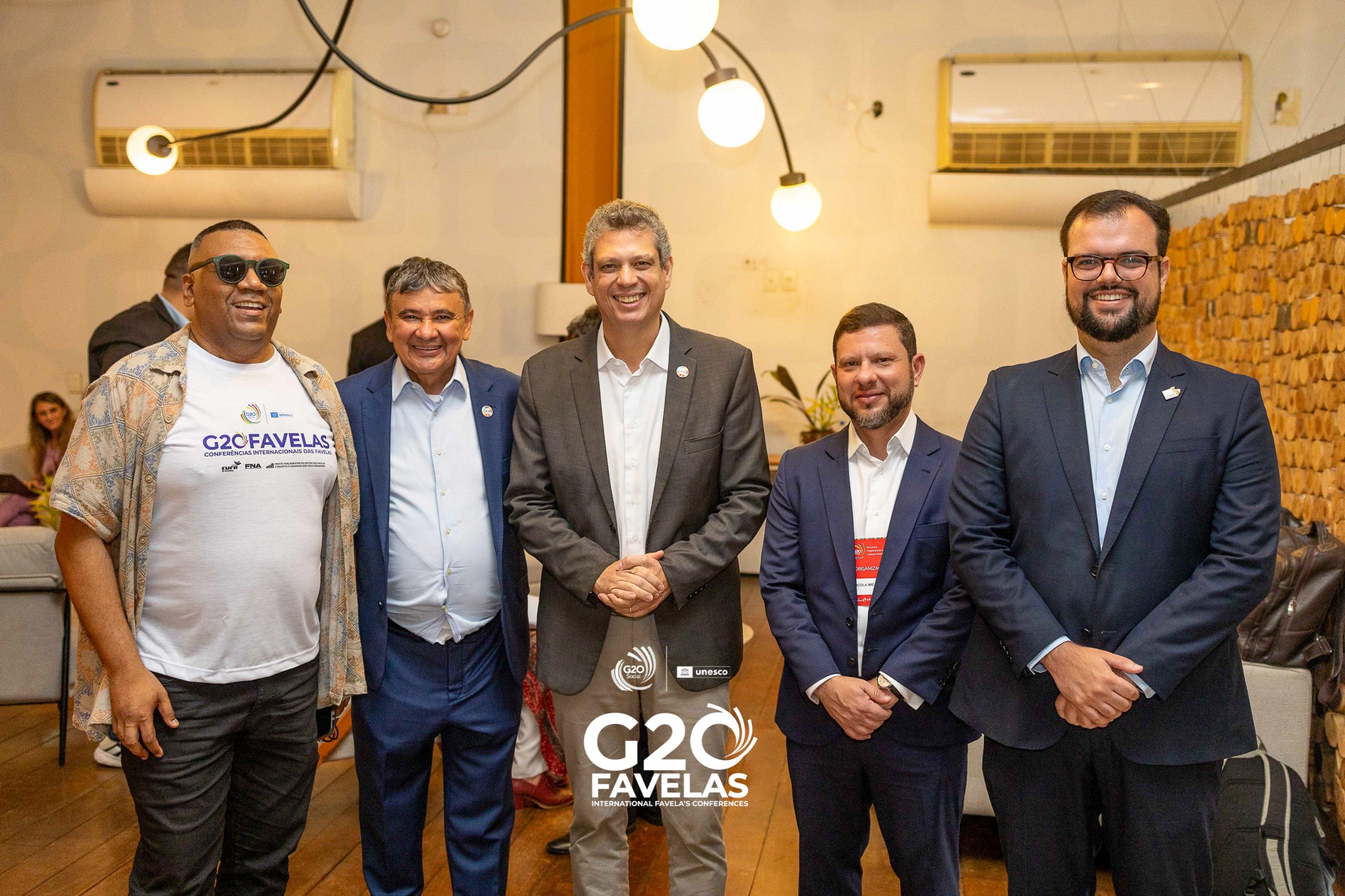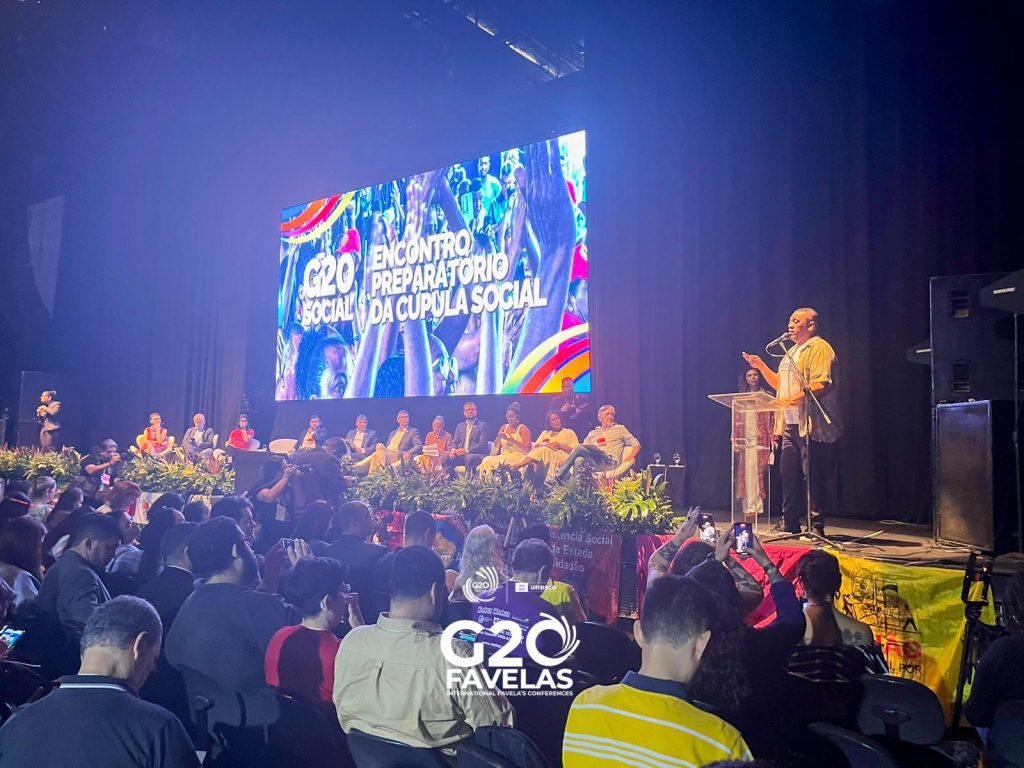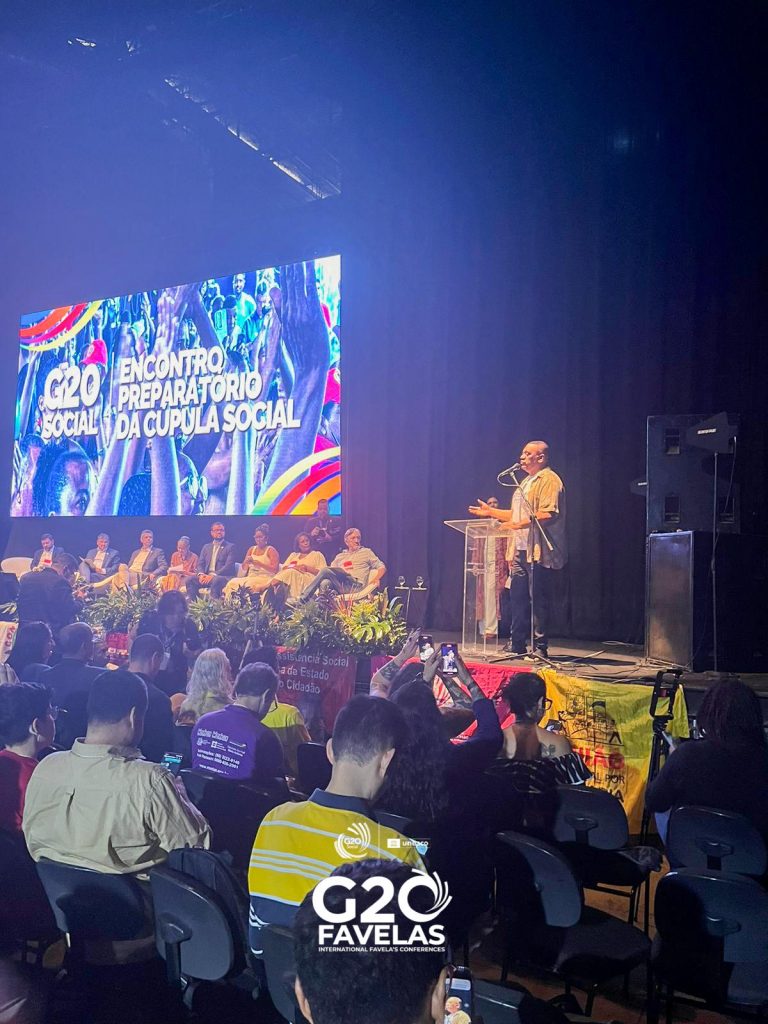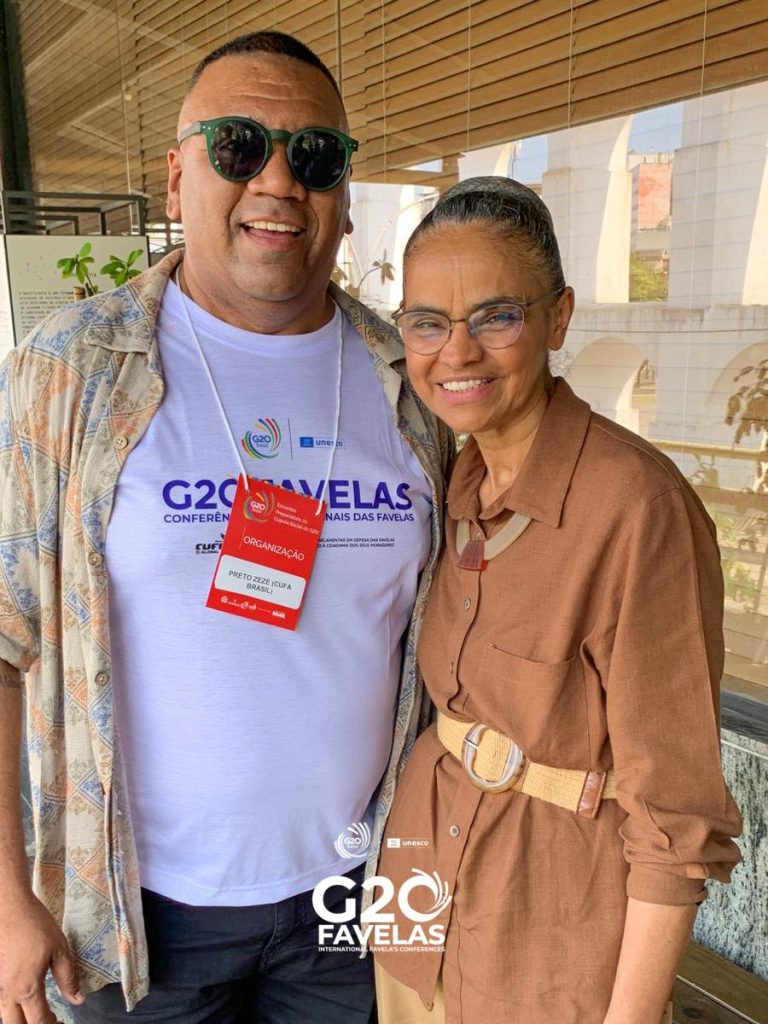
On August 20, 2024, Rio de Janeiro became the stage for a historic event for G20 Favelas. During the G20 Social Summit Preparatory Meeting, Preto Zezé, President of CUFA Rio, took an active role on the panel “Global Governance Reform,” emphasizing the importance of focusing on agendas centered on favelas and social inclusion on a global scale.
This meeting marks the first G20 Social gathering, which brings together civil society representatives and social movements to discuss and develop proposals aimed at social justice. Preto Zezé representative of G20 Favelas highlights the crucial role that favelas play in shaping inclusive public policies. During the opening, Zezé seized the opportunity to engage with fellow panelists, discussing the significance of ensuring that favela voices are included in global decision-making and governance reforms that directly impact these communities.

Alongside Preto Zezé were key political figures such as the Minister of the General Secretariat of the Presidency, Márcio Macedo; the Chief Secretary of the Civil House of the State Government of Rio de Janeiro, Nicolla Miccione; and the Chief Secretary of the Civil House of the City of Rio de Janeiro, Lucas Padilha. The presence of these leaders reinforces the commitment to integrating favela demands into discussions on public policies. Additionally, Marina Silva, Brazil’s Minister of Environment and Climate Change, also played a significant role at the event, expanding discussions on how environmental policies affect vulnerable communities.
During the meeting, Preto Zezé emphasized the need to advance public policies aimed at the development of favelas, highlighting the importance of recognizing the unique characteristics of these territories. Zezé took advantage of the platform to engage in dialogue with other panelists on the role of favelas in building sustainable solutions and striving for a more equitable future for all.
The participation of G20 Favelas in this preparatory event shows that the demands of favelas are increasingly integrated into global discussions. The favelas’ protagonism continues to occupy significant spaces, bringing forth essential issues related to governance and the creation of public policies that promote social justice nationwide and beyond.


